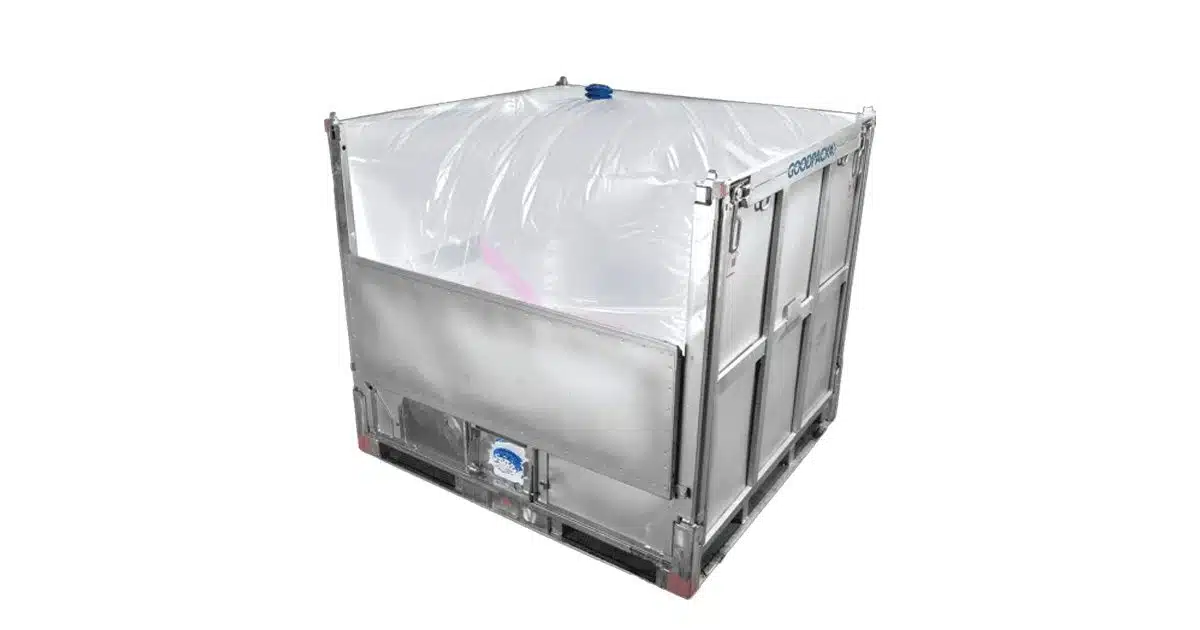In the world of food and beverage manufacturing, maintaining product purity during storage and transport is critical. Contamination can compromise flavor, quality, and safety, leading to waste and regulatory issues. For companies that handle liquid ingredients such as dairy, oils, syrups, and juices, using safe and sanitary packaging is essential. That’s where food-grade IBC liners play a vital role. These liners provide a protective barrier inside Intermediate Bulk Containers (IBCs), ensuring that bulk liquids remain uncontaminated from the moment they are filled to the time they are dispensed.
IBC Packaging for Food and IBC Packaging for Beverage applications rely on advanced liner technology to safeguard contents against bacteria, particulates, and other potential contaminants. By combining hygienic design with regulatory compliance, food-grade liners have become an industry standard for bulk liquid transport.
Why Contamination Control Is Critical in Bulk Liquid Transport
Transporting bulk liquids such as milk, edible oils, and fruit juices introduces several contamination risks. Containers must withstand changes in temperature, pressure, and handling conditions while keeping contents free from microbial growth or chemical exposure. Traditional containers made from metal or rigid plastic can retain residues and require extensive cleaning between uses. Even minor imperfections on the inner surface can harbor bacteria, compromising future batches.
Food & beverage bulk container liners eliminate these concerns by providing a sealed, single-use or replaceable barrier between the product and the container walls. This hygienic approach ensures that each batch is isolated, maintaining freshness and purity without relying on chemical sanitizers or extensive washing.
Innovative Liner Solutions specializes in liquid food packaging solutions that deliver this level of protection. Designed for ease of use, reliability, and compliance, their liners are trusted across the food and beverage industry to preserve product integrity.
The Science Behind Food-Grade IBC Liners
Food-grade IBC liners are engineered using multilayer film technology that combines strength, flexibility, and chemical neutrality. Each layer serves a distinct purpose in contamination prevention, working together to ensure that no external or internal factors affect the product inside.
Multi-Layer Barrier Protection
A key design feature of food contact safe IBC liners is their multi-layer structure. Typically made from polyethylene or polypropylene, these liners include inner, middle, and outer layers:
-
The inner layer provides a smooth, non-reactive surface that directly contacts the product.
-
The middle layer enhances strength and prevents punctures or leaks.
-
The outer layer acts as a shield against oxygen, moisture, and other environmental contaminants.
This layered construction helps prevent oxidation, flavor alteration, and microbial intrusion—three of the most common causes of product contamination in bulk liquid transport.
FDA-Compliant and Safe for Direct Contact
To qualify as FDA-Compliant Bulk Liquid Packaging, every component of a liner must be tested and approved for direct food contact. This ensures the material does not leach chemicals or alter the product’s flavor, color, or safety. Compliance with FDA and international food packaging standards reassures manufacturers that their products will arrive in the same condition as when they were filled.
Innovative Liner Solutions produces liners that meet these standards, ensuring compatibility with a variety of consumable products, including dairy, juices, syrups, and oils.
Chemical Neutrality and Compatibility
Liquid foods can be sensitive to interaction with plastics or environmental elements. For example, edible oils are prone to oxidation, and acidic juices can react with improper materials. High-quality bulk edible oil container liners and IBC Liners for Juice & Concentrates are made with chemically inert films that maintain the natural properties of the product throughout transport and storage.
This chemical neutrality also helps prevent cross-contamination when containers are reused, as the liner completely isolates the liquid from the container’s interior surfaces.
Applications Across the Food and Beverage Industry
Food-grade liners are not limited to one type of product. They are used in multiple sectors, from dairy and beverage manufacturing to edible oils and liquid sweeteners. Each application presents unique challenges that liners are designed to meet.
Dairy and Liquid Foods
IBC liners for dairy products are engineered to maintain strict hygiene standards required for milk, whey, and cream concentrates. The liners reduce exposure to air and microorganisms, preventing spoilage and extending product shelf life.
Edible Oils and Syrups
Bulk edible oil container liners provide superior oxygen and moisture barriers that prevent oxidation. This is essential for oils and syrups, which can lose quality when exposed to air or humidity. These liners are also ideal for viscous products that require smooth interior surfaces for complete drainage.
Juices and Concentrates
IBC Liners for Juice & Concentrates are designed to handle acidic contents without degradation. They help preserve flavor, aroma, and color while maintaining sanitary conditions during long-distance transport.
For a detailed look at how these liners serve multiple food sectors, visit Food-Grade IBC Liners For Dairy, Oils, And Liquid Foods.
How Liners Simplify Compliance and Quality Control
Food manufacturers must comply with strict safety regulations from agencies such as the FDA, USDA, and international authorities. Using certified, food-safe liners simplifies this process by reducing contamination risks and ensuring regulatory compliance.
Because liners are disposable or replaceable, there is no need for harsh chemical cleaning, which can leave residues or create environmental waste. Instead, each shipment begins with a fresh, sanitary liner that meets all quality requirements.
The use of food & beverage bulk container liners also enhances traceability, as manufacturers can document liner batches and materials used for each production run. This accountability supports consistent quality control and easy compliance verification during audits.
Benefits Beyond Contamination Prevention
While contamination control is the primary purpose, food-grade liners offer additional operational benefits:
-
Reduced cleaning costs: Eliminating the need for container washing saves time, labor, and resources.
-
Improved logistics: Lined IBCs are easier to handle and faster to refill, increasing throughput efficiency.
-
Sustainability: Reusing the outer container while replacing only the liner reduces waste and environmental impact.
These advantages make liners an integral part of modern IBC Packaging for Food and IBC Packaging for Beverage operations.
Partnering With Innovative Liner Solutions
Innovative Liner Solutions is a trusted leader in FDA-Compliant Bulk Liquid Packaging, providing food-grade liners that meet the highest standards of quality and safety. Their products are designed for diverse food applications, from dairy and oils to juices and syrups, ensuring every customer receives dependable protection against contamination.
For a deeper understanding of how liners enhance food safety and efficiency, explore the Complete Guide To Food & Beverage IBC Packaging Solutions. This resource outlines best practices for selecting, handling, and optimizing liner systems for bulk liquid transport.
Contact Innovative Liner Solutions
When it comes to protecting your liquid food products from contamination, choosing the right liner makes all the difference. Innovative Liner Solutions delivers advanced packaging systems that combine performance, compliance, and reliability.
To learn more about food-grade liners for bulk liquids, call (815) 963-9525.


